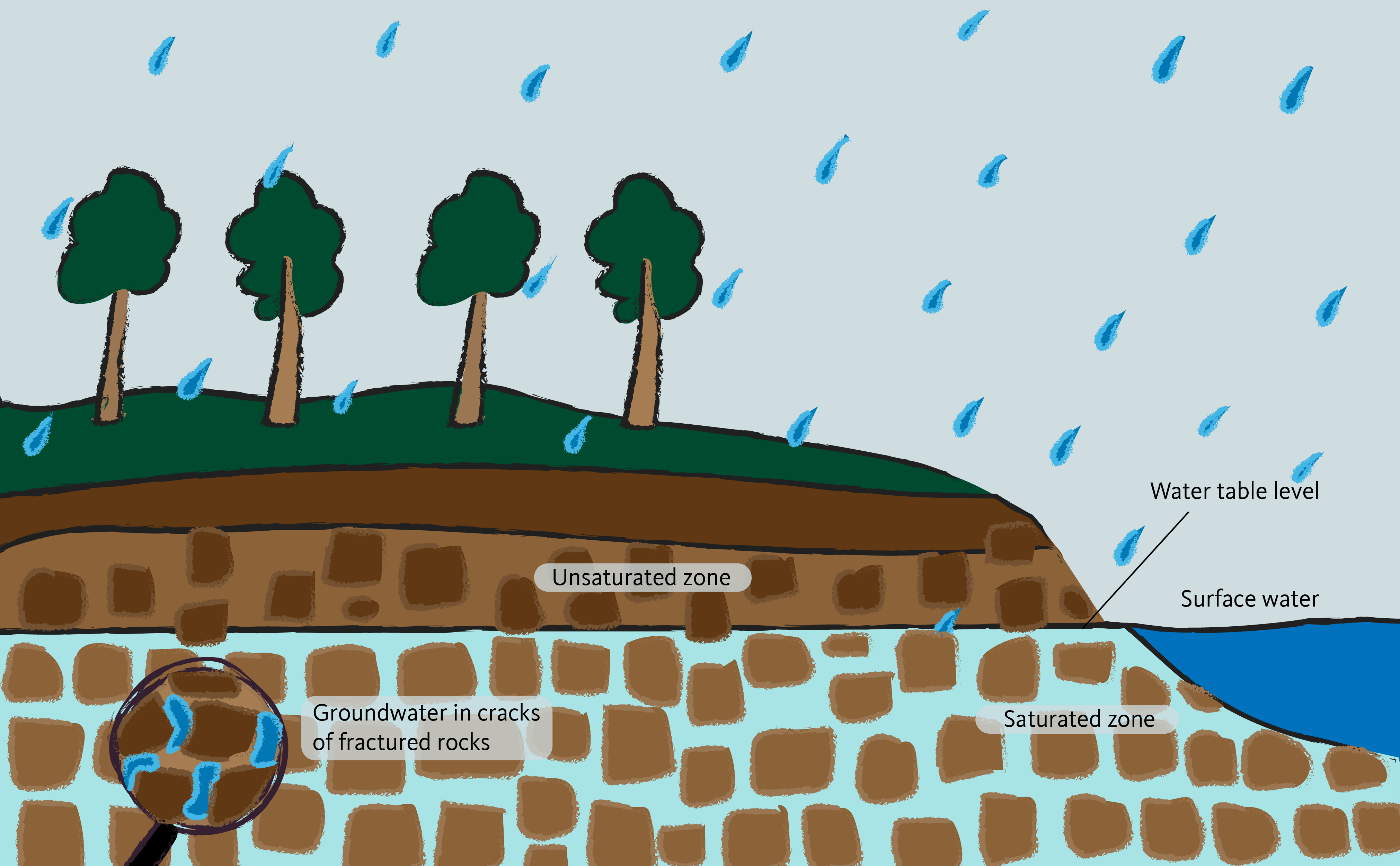World Water Day 2022: Groundwater and water-related human rights
In 2022, the water community highlights groundwater to make it more visible. It provides half of all water withdrawn for domestic use and therefore vital to realise the human right to safe drinking water. However, as this resource – and the households and communities relying on wells and boreholes – are not sufficiently understood, we tend not to recognize the worth of groundwater as we should.
Groundwater has underutilized potential for use at household level, to ensure food security, and to reinforce ecosystem services that humans depend on. Aquifers – which can be regarded as containers underground – provide resilience to climate-induced drought. Better protection of the resource is needed, however, to safeguard its quality and to hinder over-abstraction. In particular, this is a concern for the up to one billion people who are estimated to use groundwater as a source for self-supply, often because they are not adequately served.
Groundwater is different from surface water in that it is often accessed by households and communities themselves, based on own investments in digging wells or drilling to reach it. But for the most part, those end-users are not aware of how, for instance, the water cycle and climate change impact on the resource base they depend on. Such insights are crucial to translate into governance and management decisions when we talk about the need to increase provisions of safe drinking water for local communities.
From a human rights perspective, the State has a duty to respect the freedom of households practicing self-supply to provide for themselves using groundwater sources. Governments should also protect end-users from negative impacts caused by companies and other non-State actors on groundwater.
The human rights-based approach is key to ensure equitable governance and management of groundwater and aquifers, and to ensure that water allocations are prioritized for fulfilling the rights to water, food, and a healthy environment. The approach calls for application of the good governance principles of participation, inclusion, transparency, accountability, and non-discrimination. In relation to groundwater resources, this has implications for the State’s role concerning, for instance, point source protection and measures for aquifer recharge, and to protect groundwater and aquifers upstream of water services delivery points.
To raise awareness on how groundwater and human rights are fundamentally interlinked, the organisation Human Right 2 Water assembled three experts for a conversation on this topic: the UN Special Rapporteur on human rights and the environment, Dr David R. Boyd, Dr Kerstin Danert, who has long experience from working on the ground, and SIWI’s Advisor on water policy and rights, Dr Jenny Grönwall (with support from UNDP–SIWI Water Governance Facility).
Global water issues in your inbox
Stay up to date on SIWI's work and related topics from around the world.
Sign up to our newsletterMore recommended reading
- Garcia Silva, R., Grönwall, J. et al. (2020). Estimating domestic self-supply groundwater use in urban continental Africa.
- Danert, K. and Hutton, G. (2020). Shining the spotlight on household investments for (WASH): let us talk about HI and the three ‘T’s.
- Grönwall, J. & Oduro-Kwarteng, S. (2018): Groundwater as a strategic resource for improved resilience.
Get to know Groundwater
Groundwater has been out of sight and out of mind for too long. When we protect groundwater we save lives and ecosystems, improve health, reduce hunger and tackle climate change all at once.
Learn more








